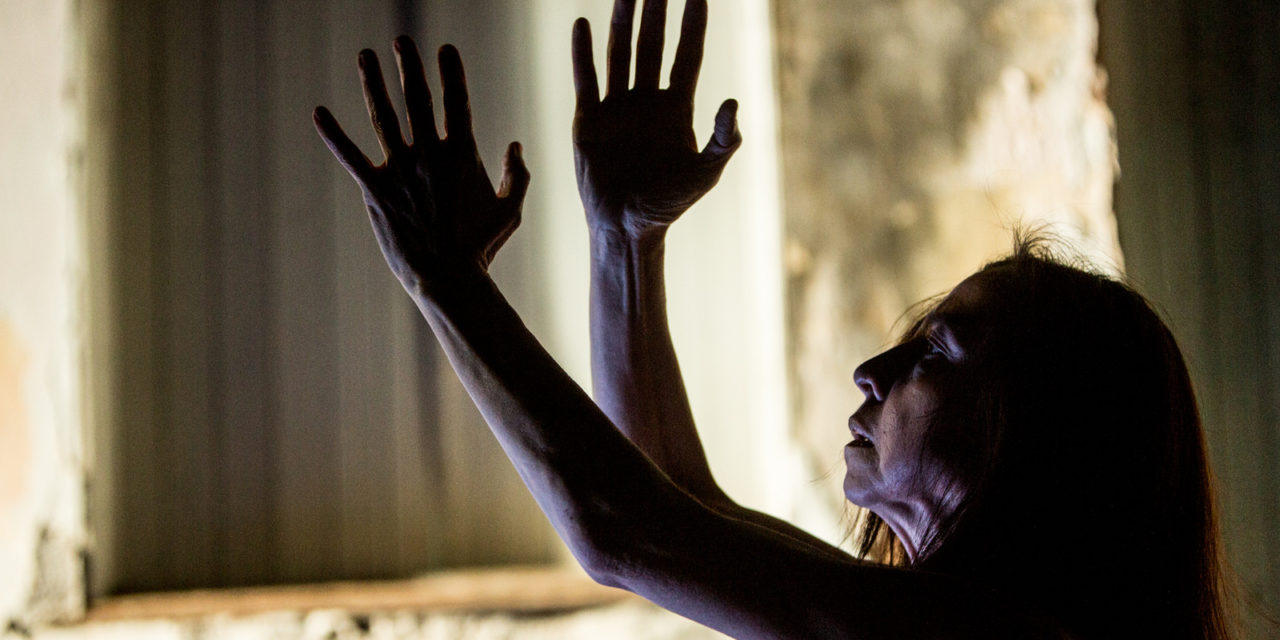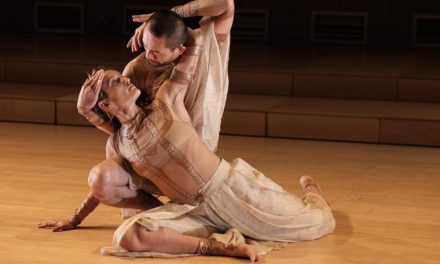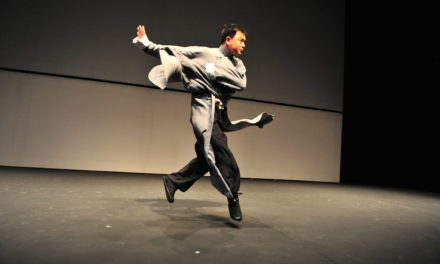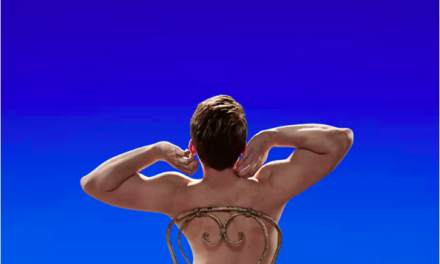Carolina Virgüez Serrato arrived at Rio de Janeiro in the early 80’s and knew she wouldn’t be back. At the age of 18, the young Colombian actress was awarded a scholarship by the Brazilian embassy and became a student of UNIRIO (Universidade Federal do Estado do Rio de Janeiro / Federal University of the State of Rio de Janeiro), an institution that offered one of the city’s most traditional theatre programs. Driven by the somewhat impulsive ways of a youthful mind – “it was like jumping from a flaming building, I had to get out of there,” she says – the truth is that Virgüez was only taking the first step into a solid career in Brazilian theatre.
18-year-old Virgüez made a definite turn in her life as she came to a country she knew very little about. Indeed, struggling to be part of a totally different culture – learning its language, customs, arts – the newcomer quickly learned that the carioca scene wasn’t set apart from the turbulent political moment. In the early years at UNIRIO, she witnessed the closing of the School of Theatre by the militaries and the nation’s re-democratization process after 15 years of dictatorship. Along the adaptation to a new political reality, there was constant work, research, and life in the theatre, passing university years and heading to a professional path created exclusively on stage. “Theatre has always embraced me,” she says, reckoning that the work as an actress has guided her at all the way.
The embracing of theatre can be seen in the partnerships made along the way: the innovative work with director Bia Lessa, the physical theatre experiments with Companhia do Gesto, the matter of narrative with Luiz Arthur Nunes, and many others. Today, Virgüez sees in those works the necessity to be part of something – “I forgot I was Colombian” – yearning to construct an identity in Brazilian theatre. That, at least, until the early 2000’s, when a turning point showed itself in the life of an already known “Brazilian” actress.
What Does It Mean to Be Colombian?
In her words, it was time to “rewind the tape”: in a rather unconscious process, Virgüez turned 40 and started to reconsider her long forgotten native language, the extended period of being “just Brazilian,” unfolding a condition that has been set aside for many years. The overlooking of her own origins passed through the harsh social and political conditions Colombia dealt with in the 80’s and 90’s – drug war, government corruption, the FARC – which affected severely the lives of her family and friends she left behind. The distant overview of her country found a break during a trip to Bogotá, in which – amidst, she says, the homey Spanish spoken by the native people in the plane and the remarkable light that gives Colombian landscape its own special color – her sister presented her with La rabia en el corazón (“Rage from the heart,” in a free translation), the book by Ingrid Betancourt, a candidate to presidency that, at the time, had been held hostage by the FARC for over an year.

Ingrid Betancourt and Carolina Virgüez in November 2009. Photo by Correio Braziliense.
The preface of the book proposed a fundamental question: what does it mean to be Colombian? Such question, to Virgüez, triggered a deep process of rediscovering her roots, her mother tongue and culture. At first, Spanish regained its place side by side with Portuguese, as Virgüez, back in Rio, got a degree as a professional translator, revealing a whole new talent in parallel with acting. Virgüez’s most remarkable work in the field of translation is definitely Teatro Contemporáneo Brasileño, a 500-page compilation of 14 Brazilian contemporary authors translated to Spanish, two of them with plays staged in Colombia (Rebu, by Jô Bilac, and Andaime, by Sérgio Roveri).
In addition to translating, Virgüez made her debut in starting her own projects with Ingrid, inspired by La rabia en el corazón and directed by Marco André Nunes, as a result of four years of research and the first product of a new phase in her career and personal life. Indeed, to Carolina, the contact with Colombian roots, as to say, her condition as a foreign woman (in connection to Betancourt’s story), made visible the diversity of cultures in which she was immersed, highlighting an aspect that will be more and more present in her creative work from 2005 to current days.

Carolina Virgüez in Susuné.
In this sense, Malentendido (The Misunderstanding) – the second collaboration with Marco André Nunes as a director – and Susuné – written by Emanuel Aragão and directed by Antônio Karnewale – reflect the new direction in Virgüez’s work. In the first, the play by Albert Camus about the return of an exiled man that is not recognized by his mother brings about the matter of one’s quest to homeland and not seeing itself in native reality; on the other hand, the African and indigenous stories in the latter work show how Colombian and Brazilian cultures share a common ground. In both plays, we can see an actress and, most of all, a woman seeking a place to belong and trying to figure out that specific spot where cultures coexist.
Carolina and the “Caranguejo”
The year of 2015 was remarkable in Virgüez’s career. Once again, the collaboration with Marco André Nunes proved to be most important. In Caranguejo Overdrive, a play written by Pedro Kososvki and directed by Nunes, Virgüez seems once again to be facing the experience of the exiled subject who is confronted by a national reality which he no longer recognizes as his own, and that, in contrast, no longer embraces the one who got away. In an interview, Virgüez says she can easily relate to the story of Cosme, a poor crab “hunter” or a scavenger who fought as a soldier of the Brazilian army in Paraguayan War (1864-1870). Returning to Rio de Janeiro years later, the lead character finds himself as a foreigner in his own hometown. Playing various parts in Caranguejo Overdrive, Virgüez received considerable attention from viewers astounded by her and other cast members’ vigorous acting. The result of such frenzy around one of the city’s most popular plays of 2015 was Carolina Virgüez’s public recognition as an actress, granted by three of the most important awards in Rio’s theatre scene: Shell, APTR and Questão de Crítica.
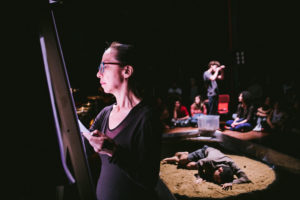
Carolina Virgüez in Caranguejo Overdrive.
Amazed by the general appreciation of her work, and one of the most respected actresses in her field, Virgüez feels deeply that neither her parents got the chance to see her on stage. In fact, she never once returned to Colombia doing what she does best: acting. Needless to say, how deeply moved she has been when asked how it feels to take Caranguejo Overdrive to Colombian audiences. Like the character Cosme, the actress is returning home from battle. The fight, however, had been won as she put together resources from Brazilian embassy in Colombia to finance the trip, against all odds in Brazil’s recent economic crisis. And yes, she got financial help from the same embassy that made possible her Brazilian journey. “It feels almost to be back in time,” says the actress, “when I was just 18 years old.”
Maybe Carolina’s desire is to seek herself in the eyes of an audience that are supposed to be familiar. Or perhaps it will be just another outstanding performance of the play on a foreign ground, hosted by the 28th Festival Internacional de Teatro de Manizales, 2nd – 11th September 2016. Nonetheless, stakes are high in Virgüez’s comeback (or is it debut?) to Colombian stage.
The animal figure of the crab – “caranguejo,” in Portuguese – reveals the possibility of redeeming a national identity facing the exile experience. The image intersects with a natural landscape (the swamps) that underlies the urban constructions of Rio de Janeiro, as well as Chico Science’s manguebeat movement from the city of Recife, another nationwide reference. Becoming a “caranguejo” is to take an alternative way to regain the sense of belonging. It means choosing a singular, more primitive path onto a renewed relationship with the native element. A way, as Virgüez says, to move forward by going back in history. Heading to Colombia, with fellow Brazilian co-workers, she might be doing exactly the same. “Yes, I am like a Caranguejo,” she says.
This post was written by the author in their personal capacity.The opinions expressed in this article are the author’s own and do not reflect the view of The Theatre Times, their staff or collaborators.
This post was written by Renan Ji.
The views expressed here belong to the author and do not necessarily reflect our views and opinions.

